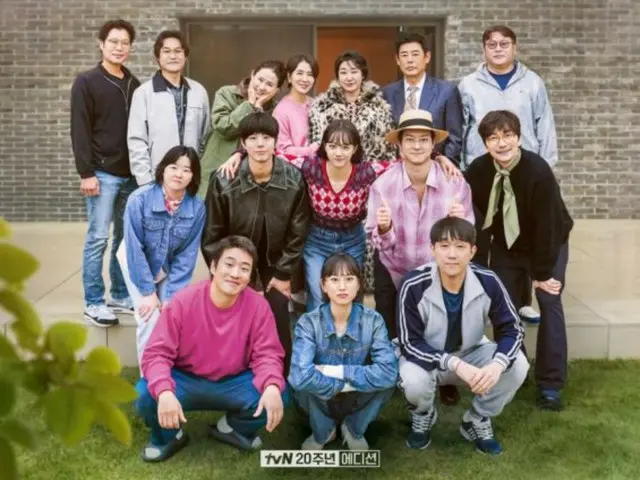 |
South Korea's defense white paper has been published every other year since 1967, and this is the 25th edition. It describes national security policies, foreign relations that form the basis of national defense, the current state of North Korea's military strength, and response strategies.
In this white paper, regarding North Korea, "The preamble to the ruling of the Workers' Party of Korea, which was revised in 2021, clearly states that the entire Korean peninsula will be communized, and at the party's Central Committee plenary meeting in December 2022, South Korea will be declared a 'clear enemy.' stipulated," he said. "Since North Korea has not given up its nuclear weapons and continues to pose military threats, the North Korean government and the North Korean military, which are the main actors behind the threat, are enemies of South Korea."
It is the first time in six years since the 2016 version under the same conservative Park Geun-hye administration as the Yoon Seo-gyeol administration, which was inaugurated in May last year, that the expression of North Korea as an 'enemy' has been revived. South Korea's Ministry of National Defense explained, "We comprehensively considered North Korea's southward policy, examples of defining South Korea as an enemy, the continued advancement of its nuclear arsenal, and military threats and provocations."
The white paper published in 1995 was the first to explicitly refer to North Korea as the 'main enemy.' During the inter-Korean working-level meeting the previous year, a North Korean representative said, "If war breaks out, Seoul will turn into a sea of fire." As the mood for reconciliation spread between the two Koreas, the 2004 white paper changed the wording to a 'direct military threat,' while the 2008 version after the inauguration of the conservative Lee Myung-bak administration called it a 'direct and serious threat.' was done.
In addition, the current defense white paper refers to North Korean leader Kim Jung Eun as "Kim Jong-un," which is the same as the existing "Chairman of the State Affairs Commission, Kim Jong-un." South Korea's Ministry of National Defense explained that North Korea took into account the words it used to refer to the South Korean president and its actions toward the South. In addition, regarding the "9.19 Inter-Korean Military Agreement" concluded in conjunction with the inter-Korean summit meeting in September 2018 between South Korean President Moon Jae-in and North Korean General Secretary Kim Jong Il, the previous defense white paper It was listed in the "General Appendix", but this time only "Major violations of North Korea's 9/19 military agreement" were taken up. The 9.19 Inter-Korean Military Agreement" includes a stipulation that hostilities on the ground, at sea, and in the air near the Military Demarcation Line will cease.
The white paper reflects the Yoon administration's policy of taking a tough stance against North Korea, but South Korean residents living near the demilitarized zone (DMZ), where the Military Demarcation Line exists between North and South Korea, have voiced concerns. there is The owner of a cafe in Yongchon, Paju, Gyeonggi Province, told the South Korean media Herald Economy, "I don't know why the government is daring to provoke North Korea. There is also a possibility that military provocations will come. The first to suffer will be the residents living near the DMZ" he said. "I'm worried, and the number of tourists from outside who come to this area will decrease."
On the other hand, Japan was upgraded from "neighboring country" to "close neighbor country" in the previous survey. It is a form that reflects the attitude of the Yun administration, which attaches importance to Japan. Regarding Japan, the 2006 edition published during the Roh Moo-hyun administration described Japan as a "major neighboring country that shares universal values," followed by the 2008 and 2010 editions of the Lee Myung-bak administration.
The 2012 edition, and the 2014 edition of the Park Geun-hye administration only stated that they "share the basic values of liberal democracy and the market economy." In the 2016 edition, in addition to that, it is described as "neighboring countries that should cooperate together for the peace and prosperity of not only the Northeast Asian region but also the world." The 2018 edition published by the Moon Jae-in administration said, "South Korea and Japan are neighboring countries geographically and culturally, and should work together for the peace and prosperity of the world." In the 2020 edition, it was written that "Japan is a neighboring country that should work together not only for bilateral relations, but also for the peace and prosperity of Northeast Asia and the world."
Also, this time, for the first time since the 2016 edition, Japan was listed first in the order of country-by-country descriptions of defense exchanges and cooperation. In the 2018 and 2020 editions, China was mentioned first, and Japan was second.
The defense white paper will be published in the first half of this year in an English translation and an abridged version in four languages (English, Japanese, Chinese, and Russian).
2023/02/21 12:47 KST


